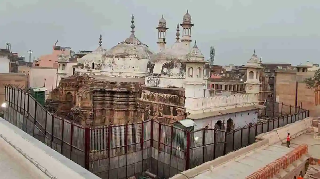In a recent ruling, the Fast Track Court of Varanasi, headed by Civil Judge (Senior Division) Yugul Shambhu, denied the petition filed by Hindu representatives seeking a more extensive survey by the Archaeological Survey of India (ASI) at the Gyanvapi mosque complex.
Details of the Petition
Advocate Vijay Shankar Rastogi, representing the Hindu side, submitted the plea in February, requesting the court to direct ASI to perform an in-depth survey of the entire Gyanvapi Mosque site. Citing its historical significance, Rastogi, on behalf of Lord Vishweshwar in the case Ancient Idol Swayambhu Lord Vishweshwar and Others vs. Anjuman Intezamia Masajid Committee, requested the use of advanced archaeological methods, including Ground Penetrating Radar (GPR) and geo-radiological techniques, to investigate the complex’s structural elements, such as domes, cellars, gates, and chambers, without causing any structural damage.
The case concerning the construction of a new temple at Gyanvapi and the demand for Hindu worship rights has been ongoing for 33 years. Today, the lawyer representing the Muslim side concluded their arguments.
Previous ASI Involvement and Findings
This plea followed an earlier ASI survey initiated by a district court order in July 2023, which aimed to determine whether the mosque was built over a pre-existing Hindu temple. The ASI concluded its preliminary survey and submitted a sealed report to the district court on December 18. The Anjuman Intezamia Masajid Committee, the body managing the Gyanvapi Mosque, had opposed Rastogi’s request for an additional survey.
Future Legal Directions
Rastogi has announced that he will review the court’s ruling to consider filing an appeal in either the Allahabad High Court or the district court. The court’s decision adds another chapter to the legal discourse over the Gyanvapi Mosque’s origins and historical claims, a debate closely watched for its implications on heritage preservation and religious rights.



